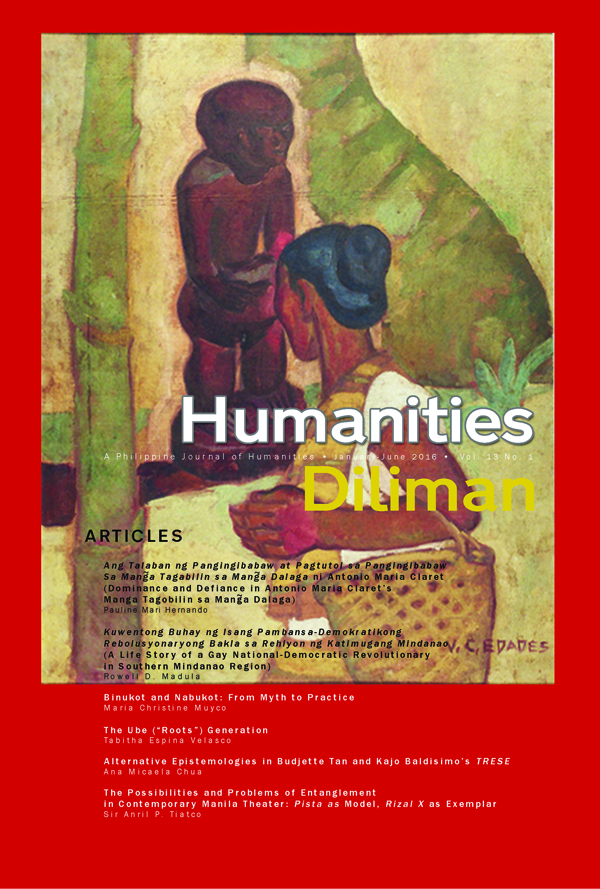Ang Talaban ng Pangingibabaw at Pagtutol sa Pangingibabaw sa <em>Manga Tagobilin sa Manga Dalaga</em> ni Antonio Maria Claret (Dominance and Defiance in Antonio Maria Claret’s <em>Manga Tagobilin sa Manga Dalaga)</em>
Abstract
In between the years 1882 and 1889, seven books about etiquette were written and translated in Tagalog. Three of these publications distinctively dealt with the same theme. These were Ang icatututo ng babae sa Filipinas by D. Manuel Fernandez Herrera, Manga tagobilin sa mga babaying may asaua and Mga tagobilin sa manga dalaga by Antonio Maria Claret y Clara. These three books were unlike the typical earlier publications about the pursuit of holiness, prayers, reflections, holy scriptures, and lives of the saints and martyrs. The second half of 19th century was remarkable because of the propagation of manuals/handbooks on good manners and moral texts, which centers on the position of women in society, as new literary forms. This paper seeks to deliberate the actuality of colonial power and social order in the context of the rules directed at women. Through Claret’s Mga tagobilin sa manga dalaga, this paper will present how the dialectical status of women, at the bottom of the social hierarchy based on the new discourse on social power, was constituted and established through the imposition of colonial authority.
Keywords: Women, rules, discourse of power, resistance, sexuality


